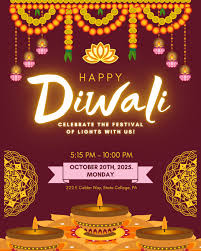Diwali Celebration: Significance and Festivities in Canada

Introduction to Diwali Celebration
Diwali, also known as the Festival of Lights, is one of the most significant festivals celebrated by millions of people across the globe, particularly in India and countries with large Indian diasporas, including Canada. This joyous occasion symbolizes the victory of light over darkness and good over evil, making it an important cultural and spiritual event. As communities across Canada prepare for Diwali 2023, it has become increasingly relevant to understand the customs, traditions, and the growing impact of this festival in the multicultural mosaic of the country.
Traditions and Events
The festivities surrounding Diwali typically last five days, with each day holding its own significance. The first day, Dhanteras, marks the beginning of the celebration, focusing on wealth and prosperity. The second day, Naraka Chaturdashi or Choti Diwali, commemorates the defeat of the demon Narakasura by Lord Krishna. The third day is the main Diwali celebration, where families perform religious rituals, light oil lamps, and partake in festive meals.
In Canada, many communities organize large public Diwali events, showcasing cultural performances such as dance, music, and traditional rituals. Throughout major cities, including Toronto, Vancouver, and Calgary, vibrant decorations can be seen as households light up with diyas (oil lamps) and colorful rangoli designs, celebrating the festival’s spirit.
Significance and Community Engagement
Diwali not only represents spiritual enlightenment but also fosters community engagement and charitable acts. Many individuals and organizations use this time to volunteer, donate to local charities, and provide support to underprivileged families. Schools and cultural organizations across Canada incorporate Diwali into their curriculums, teaching students about its significance and promoting inclusivity and respect for diverse cultures.
Conclusion
As the Diwali celebration approaches, its relevance continues to grow in Canada, reflecting the country’s commitment to cultural diversity and inclusion. This year, as more individuals and families come together to celebrate, it is an opportunity for all Canadians to learn about the festival’s rich traditions and foster connections across cultural divides. With increasing participation from various communities, the festival represents not just a celebration of lights but also a bridge that brings people together in unity and joy.









